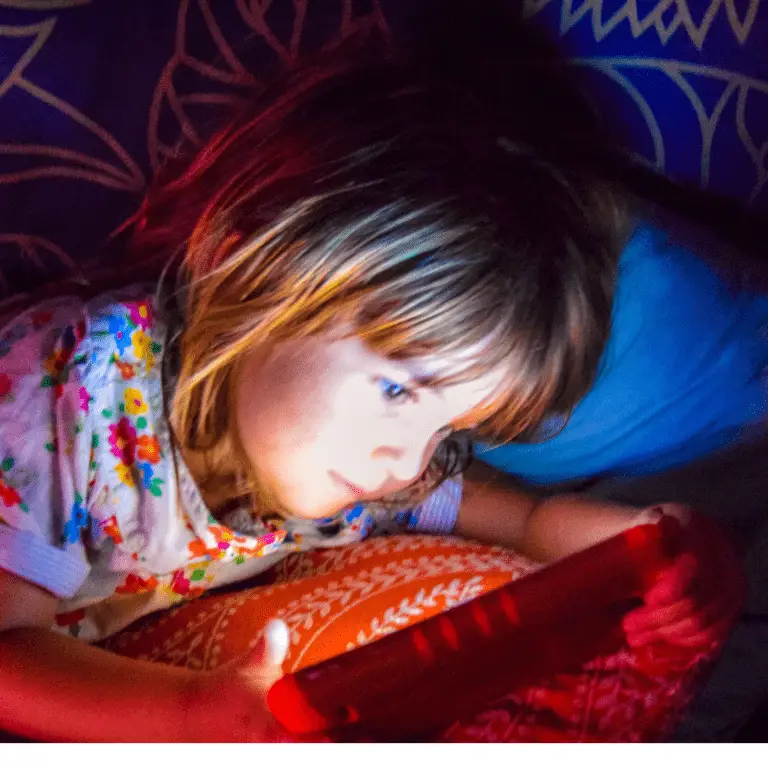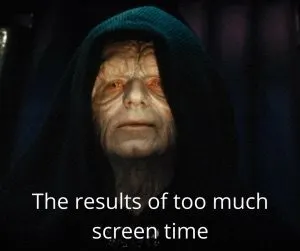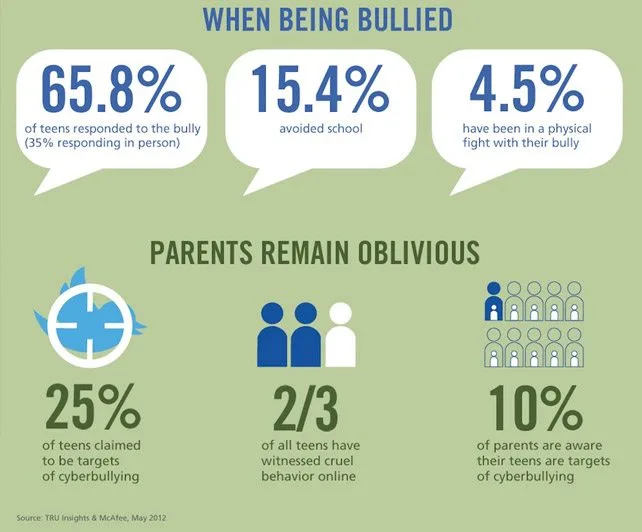My kids and husband are huge Star Wars fans so it seems only appropriate that I channel my inner Emporer when my kids get mad about our screen time rules – or more specifically, about their lack of any screen time during the week. Let’s be honest, the research is in about the dangers of screen time and the negative impact in depression, anxiety, sensory processing, and executive functioning.
The Negative Impacts of Screen Time
My response is always the same: “I feel your anger. It gives you focus. It makes you stronger.”
Years ago my husband and I implemented a ‘No screen time during the week’ policy for my pre-school and elementary-aged children.
An extreme strategy? Perhaps. But after doing the research, we decided that the costs of screen time during the week for these young children outweigh the benefits.
My intent is not to tell you what your screen time strategy should be. I only hope to provide you with the information you need to start developing a strategy with your children about screen time.
A strategy is key.
Here’s What The Dark Side of Kids Screen Time Looks Like
#1 – Kids Are Missing Out On Really Important Stuff…Like Boredom, Exercise, and Hobbies.
“BUT MOM, THIS IS BORING”
Bored children can come up with more uses for a plastic cup.
That is to say that boredom in kids (and adults) leads to more creativity. In fact, there have been several studies done that show the MORE BORED people are, the MORE CREATIVE they get. For example, one study measured creativity in 3 groups – a control group, an ‘actively’ bored group that had to write down numbers from a phone book and a ‘passively’ bored group that was asked to just read the phone book. The group that had been reading the phone book, was the most creative.
“Boredom motivates people to approach new and rewarding activities. In other words, an idle mind will seek a toy. “
Harvard Business Review: The Creative Benefits of Boredom
My conclusion: sit down right now and read this article out loud to your children. I’m here to help with your kids’ creativity.
Bored children have better working memories.
Daydreaming requires work and it turns out that people that daydream have a better working memory. What does this mean? Good working memory helps kids process incoming information, follow directions, pay attention and learn the building blocks of reading and math (through recognition and reproduction of visual and auditory cues and patterns).
“REMEMBER THE GOOD OLE DAYS WHEN KIDS RAN AROUND THE NEIGHBORHOOD?”
The physical activity used to be a given for after-school play. Today when my kids run wild through the neighborhood, they often end up sedentary on a screen at someone’s house instead of building forts in the woods and entertaining novel and physical forms of play and mischief. Statistics show that approximately 1 in every 4 kids is overweight and 17% are obese. We cannot point to anyone’s cause for these astonishing statistics, but it is well known that children are spending more time sedentary on screens rather than out playing in the neighborhood.
“THE WAY WE SPEND OUR TIME DEFINES WHO WE ARE”
Our children have so many wonderful ways to spend their time that are probably more important and will have produce long-term benefits than being on a screen. Our children should be developing hobbies, volunteering, spending quality time with family, and doing chores to ensure the family is operating together smoothly. In other words, pick anything that isn’t screen time and they are probably deriving more value from it. Screenagers, a fantastic documentary, features a teenage boy with a gaming addiction. His main regret after rehab is the loss of time that could have been spent practicing things he loved (like a piano) instead of playing video games.

#2 – Screen time + Dopamine = Love
Yes, dopamine addiction is real and screen time gives us all dopamine releases. Believe it or not, looking at a screen goes against our primal instincts to survey the landscape for predators and berries. But, kids are able to stare at a screen for 6-8 hours a day (the average screen time for kids) because they are getting regular dopamine releases from receiving new information. Most of us adults can understand this (excuse me while I refresh my Facebook page to see if there are any new likes on my latest blog). Tristan Harris, the founder of Time Well Spent, found that most people check their phones (or pocket slot machines as he likes to call it) on average 150 times per day. There are now rehab centers designed exclusively for dealing with screen addictions.
#3 – This Is Your Brain On Screens

Screen time can cause permanent brain damage.
Yikes! Remember the 80s advertisement – “this is your brain on drugs”? Scientists have found that screens have a very similar effect to drugs on the brain. Wait! Don’t turn off your screen just yet. Scientists have only discovered permanent brain damage in cases of gaming addiction. However, there is cause to believe that there are subtle changes happening to our brains in the hours that we use screens every day. In cases of addiction, there are structural and functional changes to the brain affecting our ability to plan, prioritize, monitor emotions, empathize, and manage impulses. In the case of moderate users, you may encounter symptoms that Victoria Dunckley, M.D. refers to as Electronic Screen Syndrome.
“ESS is essentially a disorder of dysregulation. Dysregulation can be defined as an inability to modulate one’s mood, attention, or level of arousal in a manner appropriate to one’s environment.”
Do you notice your child struggling to adjust back to routine after having screen time?
[clickToTweet tweet=”‘Screen time can create permanent brain damage.'” quote=”‘Screen time can create permanent brain damage.'”]
#4 – Keep An EYE On It

Too much screen time can permanently damage your eyes.
Screens change how often you blink and how you blink. Normally you blink on an average of 18x per minute but when you are on a screen you reduce that to approximately 2-4x per minute. This creates dry eyes and has the potential to permanently damage your eye gland. Dry eyes are accentuated by less effective blinks. Your blink is weaker while looking at a screen and over time this can cause muscle fatigue.
General rule: It is helpful to spend one minute every 15-20 minutes of screen time looking away from the screen and blink hard 3 times.
#5 – 9 in 10 Parents Are Unaware of Their Teens Are Targets of Cyber Bullying

The statistics are scary. Other sources claim that more than half of adolescents and teens have been bullied online and only 1 in 10 teens tell a parent if they have been a victim of cyberbullying. We need to be proactive in communicating with our kids about cyberbullying BEFORE our children are given access to any social media mediums (texting, WhatsApp, Facebook, Instagram, Twitter, etc.). Also, you may want to develop a strategy for checking social media accounts. Cyberbullying has taken many lives. Take eighteen-year-old Brandy Vela who killed herself this year in front of her family because she could no longer live with cyberbullying.
#6 – Violence In The Media Can Desensitize Youth To Violence.
It is well known that first-person shooter games were originally developed by the military to desensitize soldiers to violence and death. While there are not enough studies that show causality between violent media and violent behavior, we know that there is desensitization. Most parents spend a ton of time nurturing empathy and emotional intelligence in their kids – teaching kids to identify and manage their own feelings while understanding and empathizing with others’. We need to consciously decide how and when violent media fits into our value system.

“I have a very bad feeling about this.”
The dark side of screen time is scary but the benefits are equally amazing. The technological revolution has connected people across continents, developed new and sophisticated venues of entertainment, created operational proficiencies, offered access to information at a speed that is saving people’s lives, etc.
Learn how we manage screentime in our house
Our children can learn to be responsible users of technology who will one day use it to make their mark on the world. It is our job to be strategic in developing that relationship. Our screen time policy should be one that addresses many parameters around screen time usage:
- allotted amount of screen time
- acceptable viewing times and venues
- appropriate types of online interactions
- age-specific social media usage
Let your children see the light (of a screen that is) with full recognition and acknowledgment of what the dark side of screen time looks like.
Thanks for reading!

